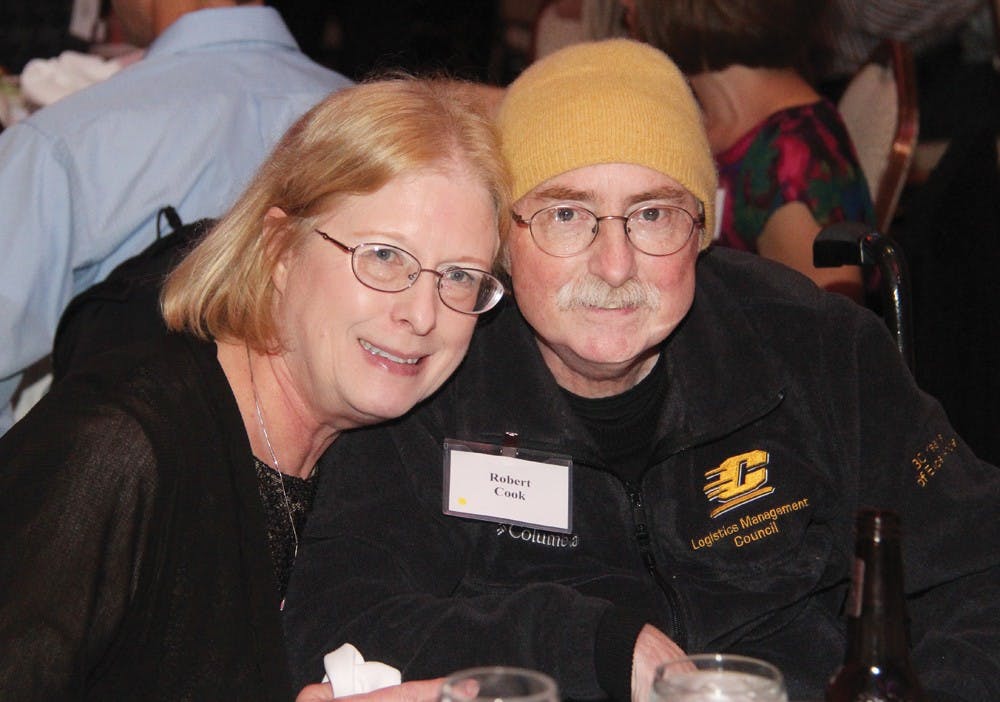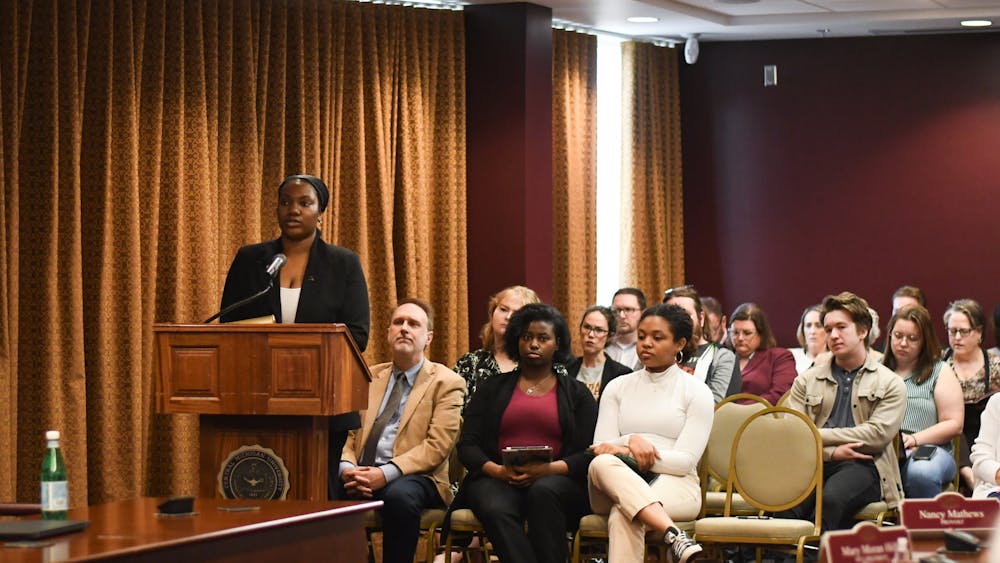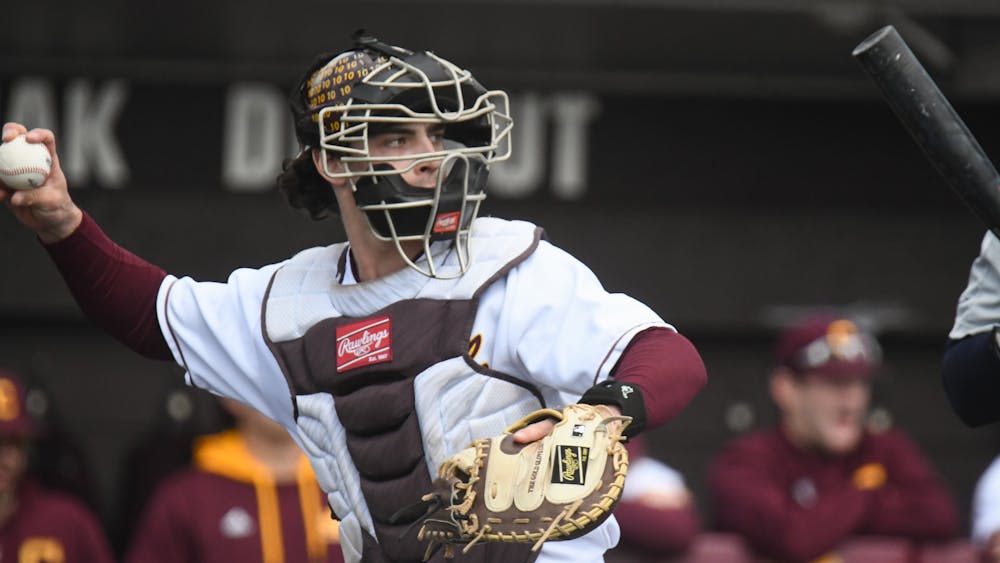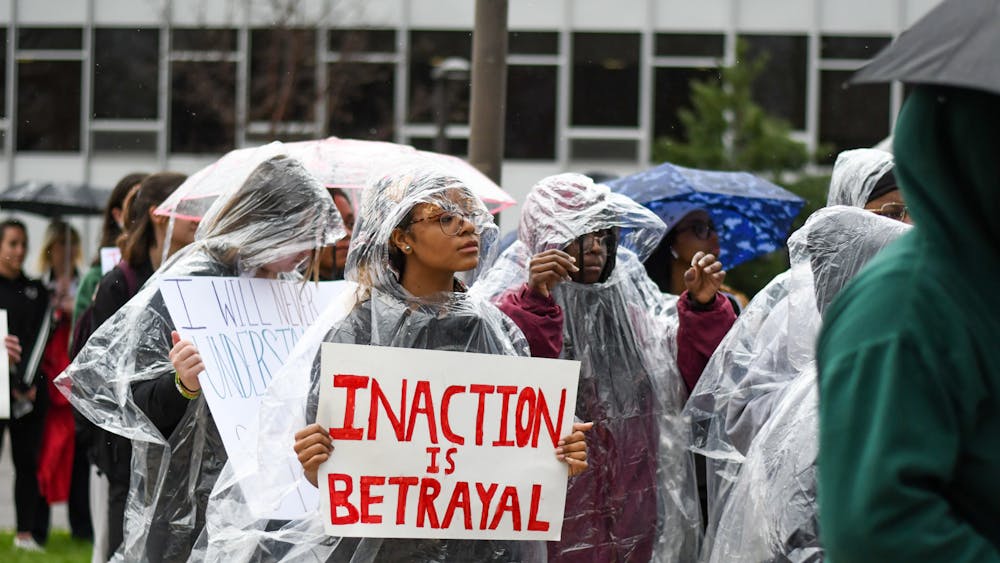Robert Cook remembered for long career of shaping CMU students

After inspiring students for 35 years and making Central Michigan University’s logistic program one of the best in the nation, Robert Cook lost his battle to brain cancer in November.
He was 67-years-old.
Cook earned his undergraduate, graduate and doctorate degrees from Michigan State University. In between degrees he served in the United States Army during the Vietnam war and was honorably discharged as a sergeant.
Cook began teaching at CMU in 1979, six years after marrying his wife Karen Kay. More than just a professor to students in his marketing and logistics management courses, Cook won the university-wide Teaching Excellence Award twice in his career.
Cook advised CMU's Logistics Management Council, Karen assisted in advising. He advised students like alumnus Ashton Shaw, who now works in customer innovation for Menlo Logistics.
"I met with him based off of a recommendation from one of the counselors in the school of business, but I never expected him to impact my life as much as he did,” Shaw said. "Right away I could tell Dr. Cook was a straight-shooting guy; very outspoken and direct. He was the first person who led me to how material moves in our society and the need for people to help move that system along."
Building CMU’s logistics program to one of the best in the nation was one of Cook’s greatest accomplishments during his career.
Alumnus Nick Zeeman said Cook’s approach inside and outside of the classroom is what helped build the success of the program.
"He was always there to give guidance, one of the most passionate professors I’ve ever had. Every class would keep you engaged. It was the way he taught and what he taught about that kept us interested," Zeeman said. "You could hear it in his voice, all that passion he had towards helping us and the program,"
Cook was said to understand teamwork better than most professors. The idea of working in close-knit teams was carried through his teaching and progressive curriculum.
¨The same set of students were in the core classes Doc taught,¨ Shaw said. ¨You’re constantly interacting with the same group of people, and that group of people would continue to meet up throughout the years. The class was competitive but with a team-based environment. He would give us real world problems, the teams would compete it out and the highest score would set the weight limit (for the class).¨
Students said Cook understood the importance of real world experience as a learning tool. Zeeman said Cook provided a rare and unique opportunity for students that isn’t always available from academics.
¨He gave me a real life experience,¨ Zeeman said. ¨I was a frequent visitor when he held office hours. It was the mentoring and experience he shared that kept me coming back. I’m seven or six years removed (from CMU) and everything I learned is still applicable today.¨
Some of Shaw's memories were made with his classmates while hanging out with Cook and Karen off campus.
¨(Cook’s students) went to Homecoming so they could go to Doc and Karen,¨ he said. ¨One time he came to the Cabin and watched my band play. Karen and he were like a second family to me.¨
Cook advised the LMC Honor Society and influenced thousands of students through it. The program held its 30th anniversary last month, where 150 students travelled to CMU to celebrate with Cook.
¨Doc always did what was best for his students, both of them committed their lives to it. He was always all in, down to the last weeks,¨ Shaw said. ¨We all met up a couple of weeks ago as a goodbye party. There were former LMC presidents dating back 25 years there to see him again. Doc and Karen never gave up the vision, they knew what it took.¨
One of the biggest influences on students in regards to teamwork was shown through Cook and Karen's ability to work so well together. Students remember Karen as Cook’s partner through it all. Zeeman and Shaw credit her for making the program successful just as much as they credit Cook.
¨Karen was there everyday by his side helping him out,¨ Zeeman said. ¨The last time I saw him was our anniversary a month ago. The thing he asked, was if Karen got enough of the credit she deserved."
Cook’s goals as a professor went past preparing his students for the real world. Zeeman credits Cook for his career, but also for life lessons he couldn’t have gotten from anyone else.
¨He went over and beyond what I expected to help make sure I was able to learn and retain what he was teaching me then,¨ Zeeman said. ¨That (LMC) really got me my first job outside of college. He helped me when I was struggling to get a job by making phone calls and constantly introducing me to people who could help me out. Mentoring and knowledge helped me enter my first job well prepared. To this day, I started several feet ahead, it's one of those things that builds upon itself in my very young career.¨
Donations to the Dr. Robert Cook and Karen Cook endowed scholorship in Logisitics Management at Central Michigan Univierisity can be made at https://www.cmich.edu/der/Giving/Pages/OnlineGiving.aspx#sthash.UDuvjB7v.dpuf




